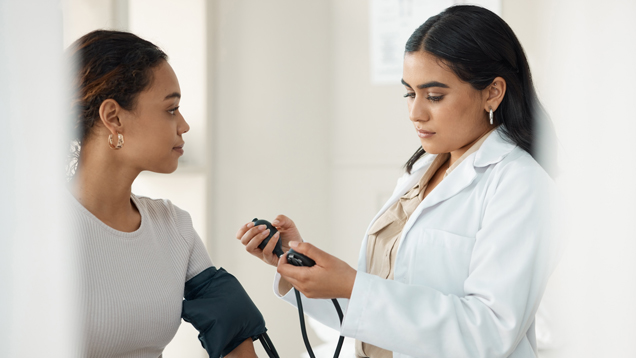
Focused on Patients, Teamwork, and Problem-Solving
Every day, Nova Southeastern University's Dr. Kiran C. Patel College of Allopathic Medicine (NSU MD) students tackle complex cases in tight-knit teams. As a student, you’ll learn to think critically, diagnose effectively, and treat patients at the center of every case.
Active Learning: Just 7-8 Students Per Group
You’ll become an active learner, working in a smaller group to solve medical problems through inquiry, under faculty facilitator direction. Using clinical cases and a team-based approach, you’ll solve complex problems by honing your diagnosis skills. The program leverages both simulated patients and real-world examples.

Medical Students Engage in Research
Students have opportunities to engage in clinical, medical education, translational, and epidemiology research projects. They present at conferences and publish case studies, achieving above the national average for matched students in research productivity.

Working on research projects develops a different set of critical thinking skills. It helps me understand the research process that is important for doctors to validate studies on medications and treatments.
Luiza Palmieri Serrano | M2
Academic Calendars and Curriculum
NSU MD Calendars by Class (Subject to Change)
NSU MD Calendars by Academic Year (Subject to Change)

